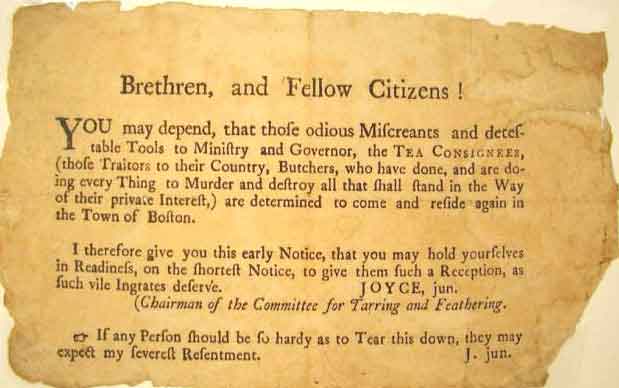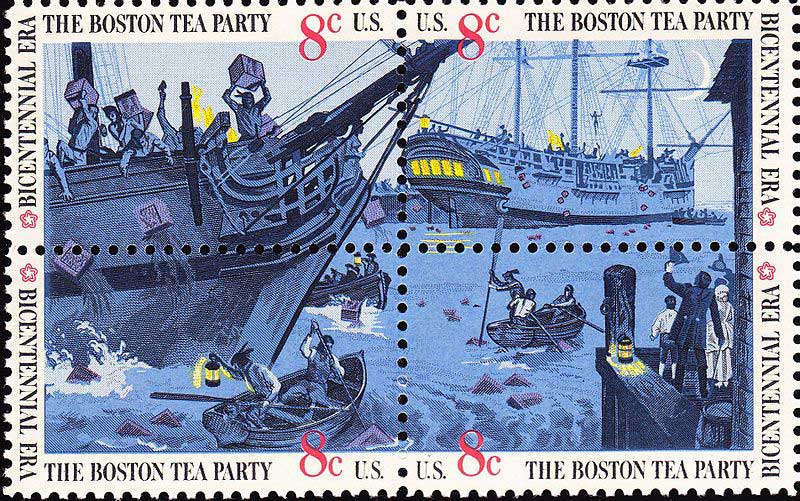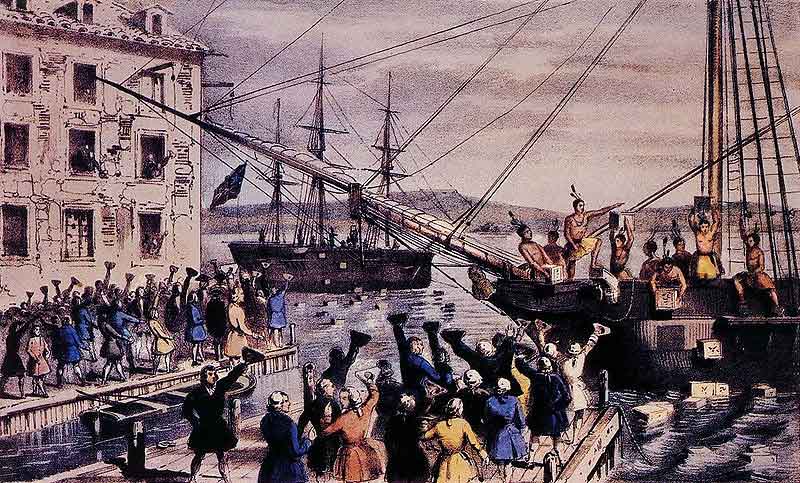People all over the world still commemorate the importance of the Boston Tea Party of 1773 to the stirring of the American Revolution. Historians swore that without that single fateful event, the revolutionary war would have not have taken place at all or at the very least, would have been delayed for many decades more. The uprising was caused by a series of unfortunate events on the side of Bostonians caused by British oppressors. It all started from the love of tea.
British: Business as Usual
During the 1700’s, Europeans have discovered their new found love for tea. Not only was it a tasteful and strong drink, it made a perfectly healthy beverage to most meals as well. However, tea leaves weren’t grown much in the West and had to be harvested from the Indian subcontinent, Oceania and its islands, Malay Archipelago and the Philippines (collectively known as the East Indies). To make a fortune, many rival companies sought tea leaves from the orient and imported it to the West.
Meanwhile, the British storehouses where nearing empty because of their costly wars against France and India (commonly coined the Seven Years’ War). Upon realizing that Britain was technically on its lowest state even after a victory, King George III decided to regain the money by taxing their American colonies. It was in a way, a move that hit two birds with one stone. The other goal was to reinstate their authority to a territory which they have neglected because of war.
Taxes & Monopoly
The royalty started to put taxes in many products sold in America, including tea. Companies and normal people likewise despised the new rule but for some time have put up with it for the sake of their staple drink. More businesses still set out on the tea business until the Parliament carried out a huge mistake of monopolizing and controlling the importation that sparked the historical Boston Tea Party.
In 1721, the Parliamentary government decided to eliminate the competition in the business and came up with an act to run it. The East India Company, then the largest tea importer from the East Indies was obligated by law to sell all its tea products in England auctions. After they have seized the leaves, England resells their acquirement to British parties. Brits then marketed the tea to retailers and merchants in American settlements – of which Boston belongs.
Other Sources of taxation
To alleviate the expenses, Bostonians found cheaper alternatives illegally. They started smuggling tea from other countries. Since Holland was not controlled by the government, Americans bought smuggled tea at lower rate. They did not have to shoulder the 25% tax on tea which the East India Company paid to the government. By the 1760’s, the Dutch company had practically lost about half a million pounds to Hollanders. The parliament could not quite accept the loss.
At first, they tried to salvage the once booming tea business by acts of law. The Indemnity Act was only the first part (after the Revenue Act of 1767; previously discussed as the monopolizing of tea) of the East India Company rescue project. Passed in 1767, retracted the previous 25% tax and thus made Dutch tea more affordable than it was. To ensure the success of the Townshend programs, campaigns against smuggling was also strengthened in the year.
Before anything else however, one must take look at the Stamp Act of 1765, the second attempt of the royalty to increase revenue from their American colonies (next only to the Sugar Act). The case was that the colonies were to be taxed according to the decisions of the parliament. Stamp acts were very successful in raising funds in Great Britain, but the case for the colonies returned results from the opposite side of the pole. Because they boycotted and did not send representatives into assembly meetings, they had argued that they were being obliged to pay taxes without their consent – a violation of the written constitution.
Boycotts
To save face and business against more pocket-hurting boycotts, the Stamp Act was repealed in the following year, but then came a replacement that was more striking, oppressive and offensive to the colonies. The Declaratory Act of 1766 stated that the Parliament has control of their colonial states and thus was responsible to the law. This meant total control of the British to American taxes as well.
There were many acts of nationalism from the colonists’ parts, particularly with the Patriots, before the famous Boston Tea Party. Also known as American Rebels or Whigs, the group spear-headed a lot of activities both small scale and big scale to protest against their tormenters. They deliberately broke most acts passed by the colonizers. They resisted drinking tea taxed by the government. They convinced merchants and sellers to refrain from buying tea imports from Great Britain. Lastly, they promoted other brands and alternatives for tea.
Taking the loss of money in Boston no more, the parliament finally repealed taxation of tea in the skirts of Boston. The pledge of Bostonians on abstinence from tea was broken for a few years. Until the government pulled their latest shady trick and the last straw came to the colonists – the Tea Act.
Another Act?
The Tea Act was not a matter of high taxation. In reality, it actually made the tea from the East India Company quite as cheap, if not cheaper than the smuggled ones from untaxed countries. What angered the Patriots was the passing of the act in secret. It once again raised issues of no longer necessary controlling and the right of colonists to be taxed only according to their knowledge and choice.
The Tea Act went like this: Instead of passing the tea from countries to countries and businesses to businesses, a lot of middlemen were omitted in the cycle thus making tea significantly cheaper. From the company, tea would be directly purchased in secret by consignees waiting in docks and harbors, and then marketed to the state. The attempt to keep things quiet was easily found out though.
Party Starts
The Whigs and other smugglers (in fear of loss in business), convinced the consignees to resign and leave their post before the ships came. The act was successful in other states with the exception of Boston, where Governor Hutchinson and his sons (all consignees), stood firm on following the Tea Act. A leader in the name of Adams had then called out a meeting which included the men behind the Boston Tea Party. When the three ships reached dock and set camp on a fateful December night in 1773, about a hundred men boarded the vessels and immediately threw out all boxes and chests of tea into the water.
This operation was known in history as the Boston Tea Party, a symbolical event and inspiration to American nationalism; the spark of the American Revolution against anyone who stepped on their love for country.


